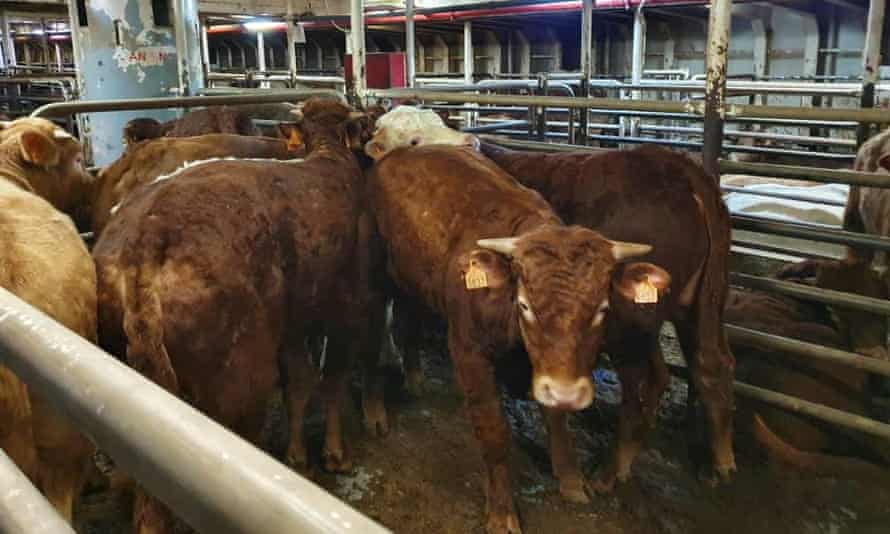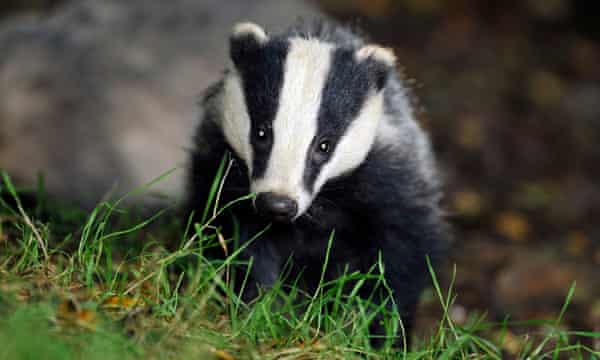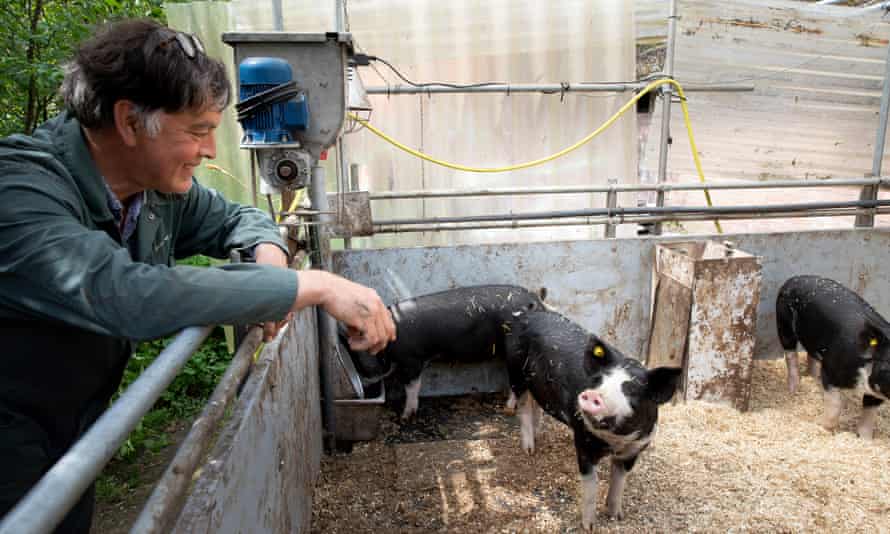Animals farmed: MEPs vote to ban cages, meat firm pays ransom – and anyone for crickets? | Animals
News from around the world
MEPs have voted in favour of a resolution calling for a ban on the use of cages across the EU for farmed animals by 2027. They also called on the EU Commission to ban the force-feeding of ducks and geese for the production of foie gras. Campaigners estimate that more than 300 million animals in the EU spend all or part of their lives in cages, pens or stalls.
JBS, the world’s biggest meat producer, has paid an $11m (£7.8m) ransom after a cyber-attack shut down operations, including abattoirs in the US, Australia and Canada. The ransomware attack disrupted production at beef and lamb processing plants and sent meat prices rising. JBS, which supplies more than a fifth of all beef in the US, said all of its American beef plants had been forced offline.
Global meat consumption will increase to record levels, the UN Food and Agriculture Organization predicts. It forecasts that meat consumption will rise by more than 1% this year, with growth fastest in low- and middle-income countries. Meanwhile, investment in the lab-grown meat industry increased sixfold, with dozens of new companies setting up, it was reported.
Spanish authorities were to blame for thousands of cattle being stranded on two ships in the Mediterranean earlier this year for three months, according to a report, after failing to provide additional information specifying that the animals originated from disease-free areas. Turkish and Libyan authorities also failed to meet World Organisation for Animal Health requirements that the welfare of animals should be the first consideration in the event of a refusal to let a livestock vessel dock. The surviving animals on both ships were put down by officials after being ordered to return to port in Spain.

Estonia has become the ninth EU country to ban fur farms. The legislation, which will not be fully enacted until January 2026, follows survey findings last year that three-quarters of Estonians opposed fur farming. All mink farms are at risk of becoming infected with Covid-19 and spreading the virus, and staff and animals should be regularly tested, EU disease and food safety experts concluded in February.
News from the UK
Campaigners are urging the UK government to consider animal welfare issues during trade talks with Australia. The Humane Society International says Australia has lower legal animal welfare standards than the UK, citing concerns over the confinement of egg-laying hens and pregnant sows, and “mulesing”, the procedure of removing strips of skin from a sheep’s backsides in an effort to prevent the parasitic infection flystrike.
UK meat processors are calling for butchery workers to be added to the government’s shortage list to maintain their ability to access migrant workers. Workers from the European Union make up more than 70% of staff at some sites, but numbers arriving are dropping due to difficulties in entering the UK since Brexit. Meanwhile, the Hull-based pork and poultry processor Cranswick has announced annual profits of £100m, driven by big increases in exports to China.
Dairy calf registrations are at the highest level for more than a decade, according to British Cattle Movement Service data. The increase is thought to be related to some milk buyers stipulating that male dairy calves must be reared rather than killed soon after birth. The practice of killing bull calves is to be banned under Red Tractor standards (the scheme applies to 95% of milk produced in the UK) from the end of this year.

The government has confirmed it will no longer license new intensive badger culls after 2022, in response to its consultation on the future bovine TB (bTB) strategy. The drive to eradicate TB in cattle will instead focus on vaccination and limiting livestock movements. But the NFU accused ministers of going “against science and evidence”, and said badger culling, alongside other controls, was effective in curbing the spread of bTB.
Buckinghamshire council has rejected a planning application for a controversial rabbit farm. Almost 40,000 people reportedly signed a petition against the application for a free-range rabbit farm at Coleshill, near Amersham. The plans were refused because of the impact the farm would have on local scenery in the Chilterns. Meanwhile, planners in Powys are re-examining an application for a 110,000 broiler-chicken farm, which had been stopped earlier this year.
From the Animals farmed series
A dramatic decline in the number of livestock farms – and an increase in the size of the remaining farms – across the EU has been revealed by a new Guardian analysis. Between 2005 and 2016, the latest year for which full data was available, the number of poultry and livestock farms fell by 3.4m, while the number of livestock on farms increased on average – a clear indication of intensification in the sector. The Prince of Wales called for small farms to band together to cope with the coming shocks and shift to a low-carbon economy.
In Italy, the collapse in the number of farms has been dramatic in its pork sector. The number of pig farms in Italy fell by 76% between 2005 and 2016, and almost 90% of the country’s estimated 12 million pigs are now reared on intensive farms. “It could soon be the end for Italian small pig farms,” said Franco Borrello, who runs a free-range farm in eastern Sicily rearing traditional black pigs. “And if I have to judge the welfare of a pig in an intensive farm, then our future is far from bright.”
There was a potentially groundbreaking story from Iraq, where a vet who fled Saddam Hussein is drawing up a landmark Kurdistan animal rights bill. And we went to meet Kees Scheepens in the Netherlands, a Dutch farmer known as the “pig whisperer”, to learn about his unique “pig toilet” and his ambition to end factory farming in his country.

In the US, we have two reports on the impact of mega-dairies on rural communities. A double investigation has investigated what has happened to small farms in Minnesota and water supplies in Arizona. It’s an uncomfortable read.
We also looked at the edible insect sector, with a visit to a cricket farm in Spain, and a report that the UK’s insect producers have been left in legal limbo by changes triggered by Brexit. And Patrick Barkham reported on a 12-year trial in Devon supporting farmers to put trees back into the UK’s fields.
Share your stories and feedback
Thank you to everyone who has shared their views on the series. Reader Pascal Desmond emailed in response to our reporting on the loss of small farms to hail the achievements of the EU’s common agricultural policy. “Everyone agrees the CAP isn’t perfect,” he wrote. “But, please, celebrate the CAP’s achievements. Stop knocking it.”
To air your views, or share your experiences and stories from inside the farming industry, please contact us at: animalsfarmed@theguardian.com.
If you want to receive this Animals farmed monthly update via email, you can sign up here to get a roundup of the best farming and food stories across the world and keep up with our investigations.
Source: theguardian.com

